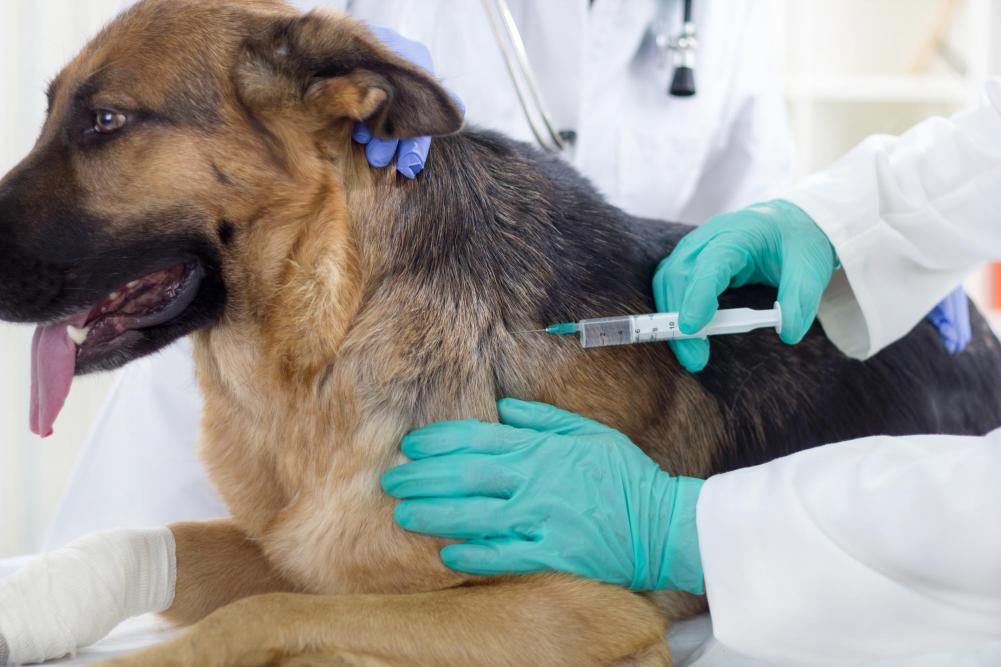The Veterinary Service Directorate of Ghana has revealed that 61,796 animals—comprising 57,439 dogs and 4,357 cats—were vaccinated against rabies between January and September 2024. This vaccination drive is part of a nationwide campaign to curb the spread of rabies, one of Ghana’s most prevalent and fatal zoonotic diseases.
Greater Accra led the vaccination efforts with 13,601 animals vaccinated, including 11,929 dogs and 1,672 cats. The Upper East Region followed with 7,653 animals vaccinated (6,910 dogs and 743 cats), while the Ashanti Region recorded 7,141 vaccinations (6,820 dogs and 321 cats). Other regions with significant vaccination figures included the Eastern Region, which vaccinated 6,159 animals, and the Bono Region, which vaccinated 5,281 animals.
In contrast, the North East Region had the lowest vaccination numbers, with only 1,021 animals (1,020 dogs and 1 cat) vaccinated. The Oti Region also reported low figures, vaccinating 657 animals (651 dogs and 6 cats). Similarly, the Savannah Region vaccinated 707 animals, while the Western North Region recorded 1,122 vaccinations.
Despite these efforts, Ghana recorded 91 positive rabies cases during the same period, with Greater Accra leading in dog rabies cases at 34. The Bono Region followed with 18 cases, and the North East Region recorded 14 cases. Western and Ashanti regions reported 11 and 8 cases, respectively, while the Upper West Region had the lowest number of cases, with just 2 reported. Alarmingly, 26 human fatalities were also recorded as a result of rabies.
Rabies, a viral disease spread primarily through the bite or scratch of an infected animal, remains a significant public health concern in Ghana. With over 2.5 million dogs in the country unvaccinated or under-vaccinated, the disease continues to pose a grave threat.
To address this, the Ministry of Food and Agriculture, in partnership with the Ghana Health Service and development partners, launched the National Rabies Prevention Campaign in 2023. The campaign, under the theme “Prevent the Bite or Scratch! Vaccinate your Dog! Stop Rabies Now!”, aims to vaccinate 70% of Ghana’s dog population over a 3- to 5-year period, a crucial target to achieve herd immunity and control the spread of the disease.
However, challenges persist in the vaccination campaign. According to Veterinary Technologist Emmanuel Eshun, one major issue is the inability of some pet owners to properly restrain their animals during vaccination drives. “The Service is faced with challenges because owners of the animals cannot hold them,” he explained.

Additionally, funding for vaccination efforts remains inadequate. Eshun emphasized that the vaccination process involves more than just administering vaccines; costs such as publicity, staff transportation, and motivation for vaccinators also need to be factored in. “The percentage of treated rabies cases is still low because you need a lot of funding. The activities surrounding the vaccination should also be costed. That is where we always get it wrong,” he said.
Eshun also raised concerns about poor animal care practices in Ghana, noting that a lack of proper vaccination, housing, and health care for animals creates an environment ripe for zoonotic disease transmission. He highlighted the role of ectoparasites such as ticks, fleas, and mites, which thrive in poorly maintained environments and can spread dangerous pathogens to both animals and humans.
“A lot of people cannot bathe their animals. If you cannot bathe your animal, it means that the tendency for the animal to have a lot of ectoparasites is higher,” Eshun noted, adding that poor hygiene and grooming increase the risk of diseases like Lyme disease, scabies, and flea-borne illnesses.
With rabies continuing to claim lives and unvaccinated animals serving as a reservoir for the disease, experts are calling for greater government commitment to funding animal health initiatives. Sustained investment, they argue, is critical to combating zoonotic diseases and protecting public health in Ghana.








